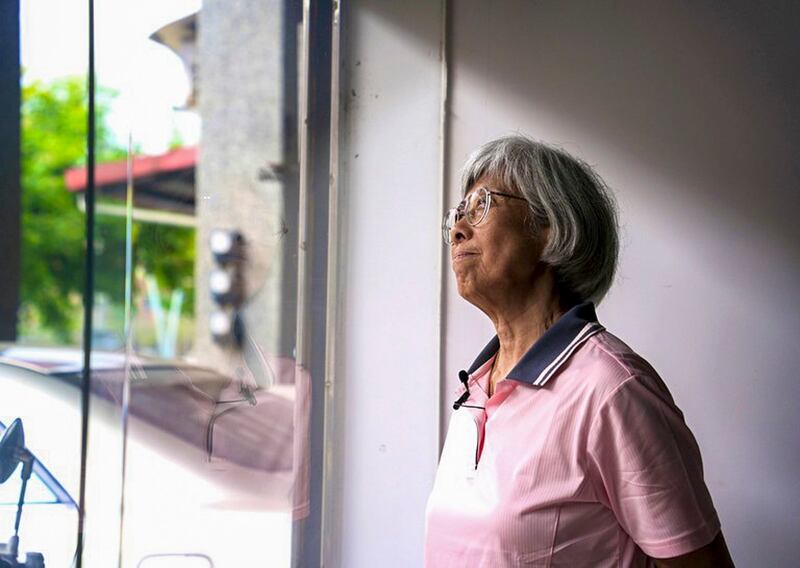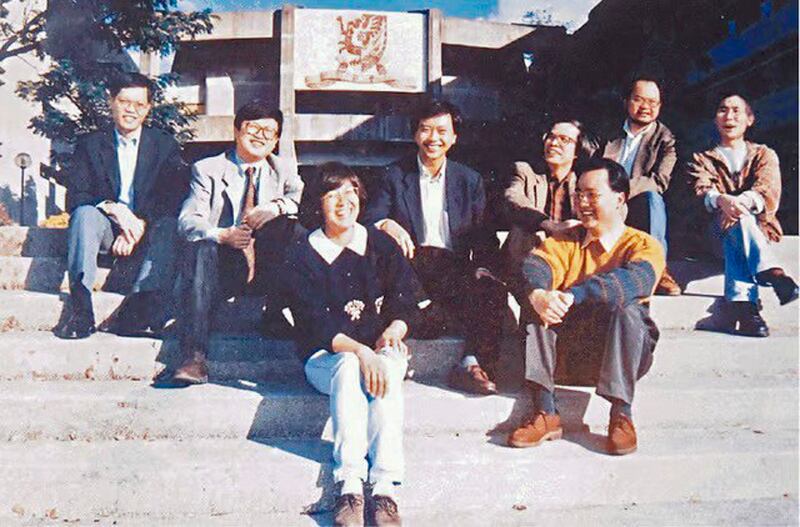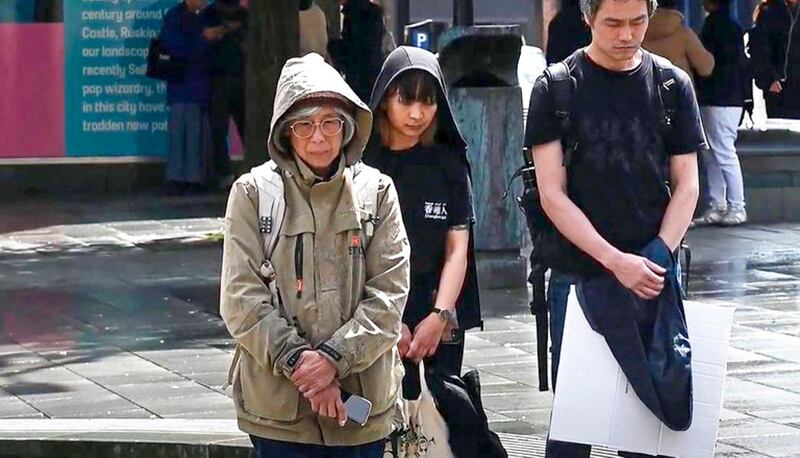In her youth, 72-year-old Yeung Po Hei was a staunch communist, delivering a public eulogy for late supreme leader Mao Zedong and later joining the ranks of nationalistic supporters of Beijing during the labor movement of the late 1960s and 1970s.
But by 2019 she was spearheading a 'silver protest' in Hong Kong as part of the city's fight to hold onto its vanishing freedoms.
Concerned about the subsequent crackdown on public dissent that followed, Yeung, like many other Hong Kongers, headed to democratic Taiwan.
Now, five years after the 2019 protests that began as a mass popular movement against extradition to mainland China and broadened to include demands for fully democratic elections, she is on the move again, seeking a new life in the United Kingdom.
"I remember telling my friends that I wouldn't leave [Taiwan], even if there was war in the Taiwan Strait," Yeung told RFA Cantonese as she left the island with her luggage en route to the U.K. "I could just tend to my vegetables and make myself food out back."
But that changed with the 2022 local government elections.
"I was pretty disappointed with [those] elections, mainly because a lot of candidates had been accused of corruption, with a good deal of evidence against them, but they still got elected anyway," Yeung said.

"What were Taiwanese voters thinking? I always thought Taiwan was a democratic society, but how is it being implemented?"
But it wasn't just the politics. Yeung's plan to make a living by running a bookstore in a quiet backwater in Taiwan's Yilan county proved harder than she had imagined.
‘A lot of rationalizing’
Back in Hong Kong, Yeung was a staunch supporter of the Chinese Communist Party, keeping faith until the fall of the Gang of Four in 1979.
Yeung took a large personal archive of newspaper reports and other material documenting her years of social activism in Hong Kong with her to the U.K.
"Firstly, it's about the memories, and secondly, it's a record of Hong Kong's history," said Yeung, who took part in the blind labor movement of the early 1970s that campaigned for better pay and conditions for blind workers, alongside fellow Maoists and communist-leaning students.

When late Mao died in 1976, Yeung was head of her university's students' union, and gave a public speech eulogizing him.
"There was a lot of rationalizing," she said of her idealism at the time. "I thought that if you wanted socialism, then that had to be led by the Chinese Communist Party."
"Later, I saw the bad things the Communist Party did, the blood on its hands," she said. "It wasn't until June 4, 1989, that I realized that the Chinese Communist Party is really evil."
After the Tiananmen massacre shocked the world in that year, Yeung withdrew from political movements to raise her kids and be a housewife for a few years.

It wasn't until Hong Kong's teenage activists led by Joshua Wong rose up in protest at plans to force "patriotic education" on Hong Kong's schools in 2012 that she started to get involved in activism again.
"Someone in the pro-establishment camp [in Hong Kong] was saying that national education was a necessity," Yeung said.
Lin Bao quote
For her, the attitude seemed to recall a quote by late disgraced Chinese leader Lin Biao: "Those who understand have to implement it. Those who don't understand, also have to implement it."
"That really got me thinking, because that's how we came out [during the Cultural Revolution] at the time, only to be deceived by the Gang of Four," she said. "I thought, if that's still the way things are today, then I want to stand up and oppose this."
Yeung started to be more engaged in social activism after that point, but no longer as a supporter of the Chinese Communist Party.
"My only regret is that I was so ignorant and naive," she said of her early support for Beijing. "If I had to it all over again, I would read more books and reports."

By the time millions were turning out onto the streets to oppose extradition to mainland China, Yeung was one of the organizers, gathering other people of her generation to take part in marches and rallies as the "Silver Parade."
But now, years of passionate engagement with politics have started to take a toll on her, both physically and mentally.
"People who stay behind in Hong Kong, who stay in that environment, are the brave ones," Yeung said. "But I don't agree that people who leave have given up on Hong Kong."
To the people of Taiwan living under the threat of encroaching Chinese political and military power, Yeung said: "Don't waste the experience of the anti-extradition movement ... It is really a good lesson and I hope the Taiwanese people can learn from it."
Even in the U.K., Yeung has continued to attend events marking the 2019 protest movement, saying that everyone can contribute to the campaign for democracy in Hong Kong 'according to their own abilities."
"What you can't do in Hong Kong, you can do after you leave," she said. "If I am able to go, I always do, sometimes out of a sense of responsibility."
But she is now also focusing more on her health, and enjoying her retirement.
"You can only keep going longer if you rest when you're tired," she said.
Translated by Luisetta Mudie. Edited by Malcolm Foster.
